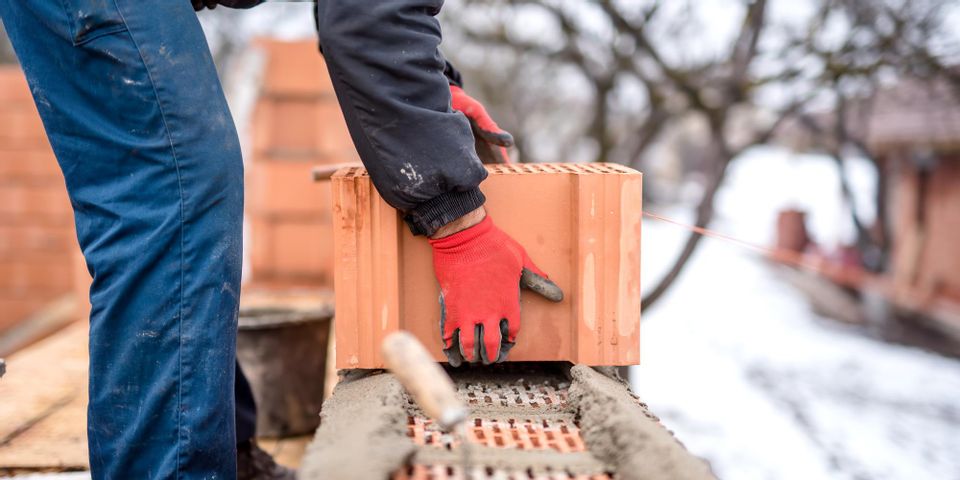3 Ways Cold Weather Can Damage Brickwork

Quality brick masonry can last for a century or more. That doesn’t mean, however, that it won’t sustain damage along the way. Cold weather, for example, is especially problematic for brickwork and can cause issues that demand prompt repairs. If any of the structures on your property have brickwork, here are some common problems that low temperatures may cause.
How Does Cold Weather Damage Brick Masonry?
1. Erosion
Moisture—often frost in the colder months—can speed up the erosion of brickwork. After forming on the facade, it can seep into the underlying layers, until the bricks start disintegrating.
Flaking and peeling are the earliest signs of an erosion problem. You may also notice holes forming all over the brickwork.
2. Cracking
 Because bricks are porous, water—including both rain and melted snow—can get inside the tiny fissures. Once the temperature drops, this water can freeze and expand. This will force the fissures to expand, as well.
Because bricks are porous, water—including both rain and melted snow—can get inside the tiny fissures. Once the temperature drops, this water can freeze and expand. This will force the fissures to expand, as well.
After several freeze-thaw cycles, the excessive pressure could cause the entire brick to crack. Since cracked bricks hurt the structural integrity of the building, they should be replaced immediately.
3. Loosening
The freeze-thaw action can also affect the joints within the brickwork. Over the course of a single winter, moisture can accumulate inside the hollows of the wall.
Every time the liquid freezes and expands, the joints will loosen. When the spring arrives, a contractor will need to repair the joints and address any damaged seals to keep water out.
If cold weather has damaged the brick masonry on your property, turn to Stutzman Sealants & Sons in Lincoln, NE. This contractor is backed by more than 30 years of experience in the field. They serve clients across Lancaster County with caulking, tuckpointing, waterproofing, traffic coating, and restoring. To request a quote, reach out on their website or call (402) 467-4144.
About the Business
Have a question? Ask the experts!
Send your question

